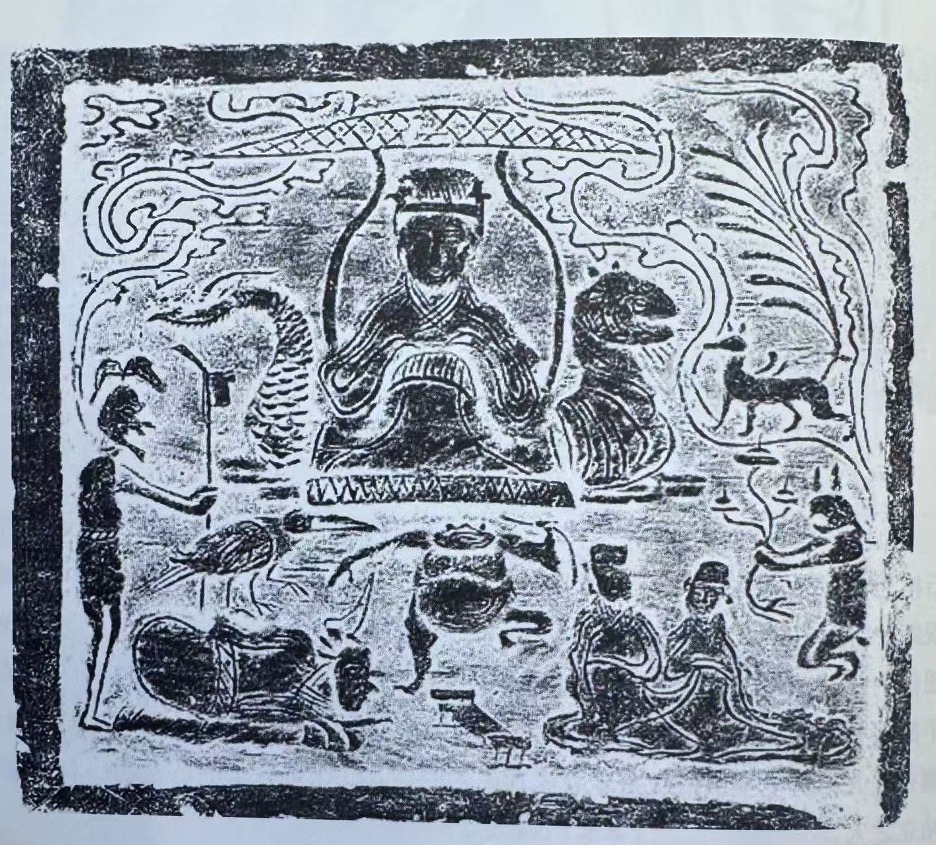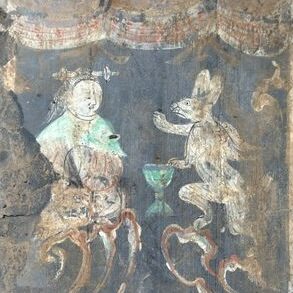· Peaches of Immortality
The Peaches of Immortality embodys her power to bestow longevity and spiritual transcendence. This association originates from Han Wu Stories, in which Emperor Wu of Han, in his pursuit of immortality, receives five peaches from Xiwangmu during a celestial encounter. The peaches are described as unusually large and exquisitely sweet. When the emperor expresses a desire to plant their stones, she laughs and explains that these peaches ripen only once every 3,000 years—emphasizing their divine nature and the rarity of true immortality. In this narrative, Xiwangmu does not grant the emperor the elixir of immortality, but the offering of peaches nonetheless symbolizes a privileged connection to the divine. From the Han dynasty onward, the celestial peach becomes one of her most recognizable emblems, appearing in literature, theater, and visual art. By the Yuan dynasty, the motif was firmly established, often depicted in murals and dramas portraying the legendary Peach Banquet (Pantao Hui), a gathering of immortals hosted by Xiwangmu to distribute peaches of eternal life.


· Elixir of Immortality
The Elixir of Immortality is one of the most defining elements of Xiwangmu of the West’s divine identity, positioning her as a central figure in ancient China’s enduring quest for eternal life. This association is most explicitly documented in texts such as the Huainanzi, where the myth of Hou Yi and Chang’e describes Hou Yi receiving the elixir from the Xiwangmu. However, the elixir is ultimately consumed by his wife, Chang’e, who flees to the moon and accompanied by a hare. This story not only links Xiwangmu to the moon and its mythic inhabitants but also emphasizes her exclusive guardianship over the elixir, which bridges the realms of mortality and transcendence.
Her role as the keeper of the elixir appears frequently in Han dynasty literature and art, including Han Wu Stories, emperor Wu of Han sought the elixir of immortality.. The elixir, in this context, becomes both a literal and symbolic gift: a highly sought-after reward, bestowed only upon the worthy.
This portrayal is further confirmed in Han dynasty tomb art, which depicts mortals kneeling in reverence before Xiwangmu, praying for the elixir. Alternatively, the hare is consistently depicted in the act of pounding medicine.

